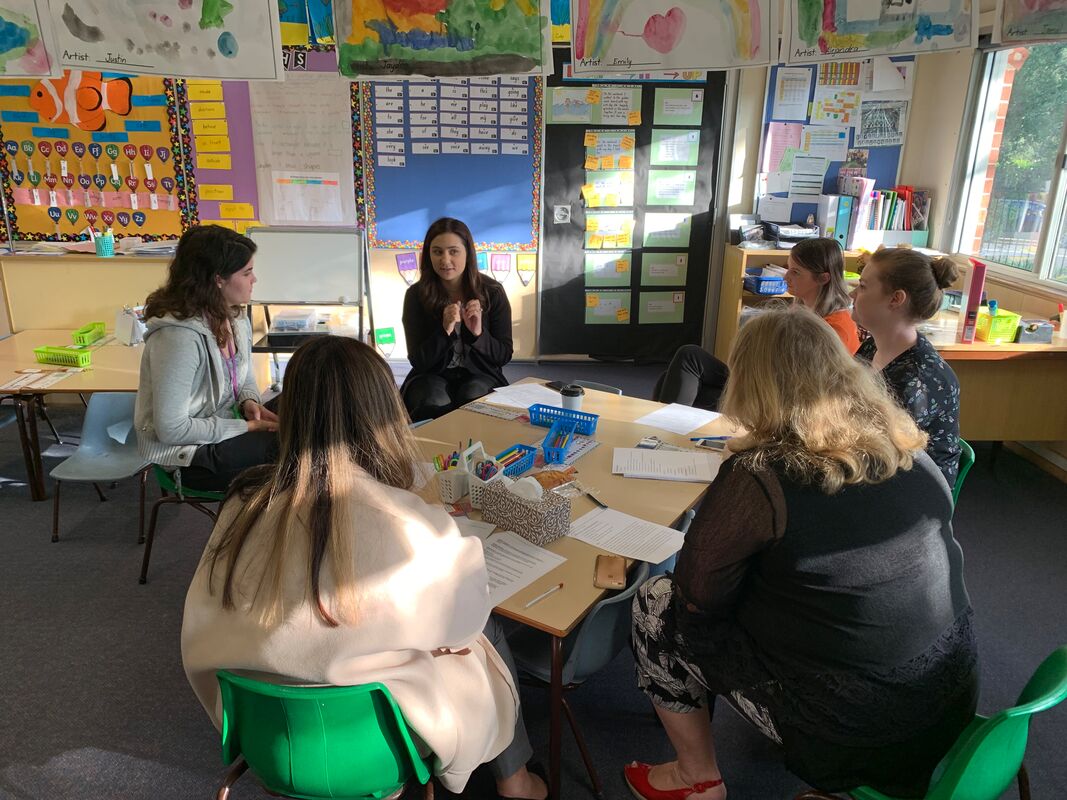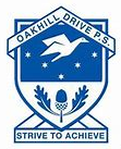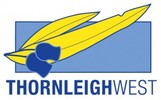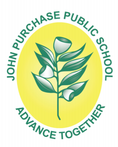Instructional rounds at JPPS 2019
Instructional rounds were held at John Purchase PS in term 1. The problem of practice was:
How is student self-regulation being enhanced in our classrooms?
* Do the instructional activities and practices provide insight into how students are thinking during their learning?
* Do they help make learning visible? That is, do they support students to reflect on the learning process so they understand: what they are learning; what success looks like; and what they need to achieve success?
* Are students active in self-regulating their learning?
How is student self-regulation being enhanced in our classrooms?
* Do the instructional activities and practices provide insight into how students are thinking during their learning?
* Do they help make learning visible? That is, do they support students to reflect on the learning process so they understand: what they are learning; what success looks like; and what they need to achieve success?
* Are students active in self-regulating their learning?
PRE-ROUND TASK
Our pre-round task was to explore this problem of practice from three different theoretical perspectives. For each perspective: What are the ideas that most relate to the pop? If the problem of practice were met: What would the students be doing and saying? What would the teachers be doing & saying? What would be the qualities of the task?
|
Your browser does not support viewing this document. Click here to download the document.
Theoretician #1: John Hattie. This document contains a summary of some of the ideas from Visible Learning for Teachers (2011), as well as the effect sizes for self-regulation from Visible Learning (2009). Click here to download
Your browser does not support viewing this document. Click here to download the document.
Theoretician #3 Dylan Wiliam Reading composes of two short extracts. Firstly, "Classroom Assessment: Minute by Minute, Day by Day" by Christine Lyon & Dylan Wiliam, then extracts from Chapter 7 of Embedded Formative Assessment, "Activating Students as Owners of Their Own Learning". Click here to download.
|
Your browser does not support viewing this document. Click here to download the document.
Theoretician #2: Ron Ritchhart. Reading Chapter 5, Modeling from "Creating Cultures of Thinking" Click here to download
Your browser does not support viewing this document. Click here to download the document.
Extension Reading: For those of you who want to look in further depth, there is an optional extension reading, "The Role of Classroom Assessment in Supporting Self-Regulated Learning". Click here to download
|
Your browser does not support viewing this document. Click here to download the document.
WHAT HAPPENED NEXT?
- We looked at the IR findings and next steps with our whole staff.
- Designed our professional learning based on our next steps and the needs of our staff. E.g. We co-constructed an understanding of self-regulated learners and realised that we needed to learn more about it's elements, including feedback, reflecting, goal setting and monitoring. Please see the 'Professional Learning' tab to see some of our presentation slides.
- For our new teachers, we organised workshops that focus on particular areas of self-regulation, including self-assessment. During these workshops we modelled the use of WALTs and success criteria.
- Staff reflected on puzzles of practice within their classrooms and set personal goals and/or Action Research questions in relation to our focus on developing self-regulated learners.
- Students were randomly selected to participate in an interview about feedback and it's impact on their learning. These findings were discussed at stage meetings.
- We currently participate in fortnightly thinking pods/study groups exploring our individual puzzles of practice in relation to self-regulation, helping each other to deepen our understanding and stay on track with our personal goals.
- During TPLs and stage meetings we are provided with opportunities to share strategies and student work samples that show our students' development as self-regulated learners.
- The executive team attended the Corwin Visible Learning Conference where they gain a deeper understanding of formative assessment and developing students as assessment-capable learners.
- Inspired by focus on 'evidence to implementation' the executive team co-created a whole school goal to achieve by the end of the year. To highlight the importance of teacher clarity, the executives performed a role play in front of the staff, showing a mismatch between the learning intention, success criteria and the task. Each staff member reflected on our whole school goal by completing a self-assessment.
our school goal until the end of the year
Your browser does not support viewing this document. Click here to download the document.
students sharing their learning journeys with their parents during open classroom visits
|
|
|




